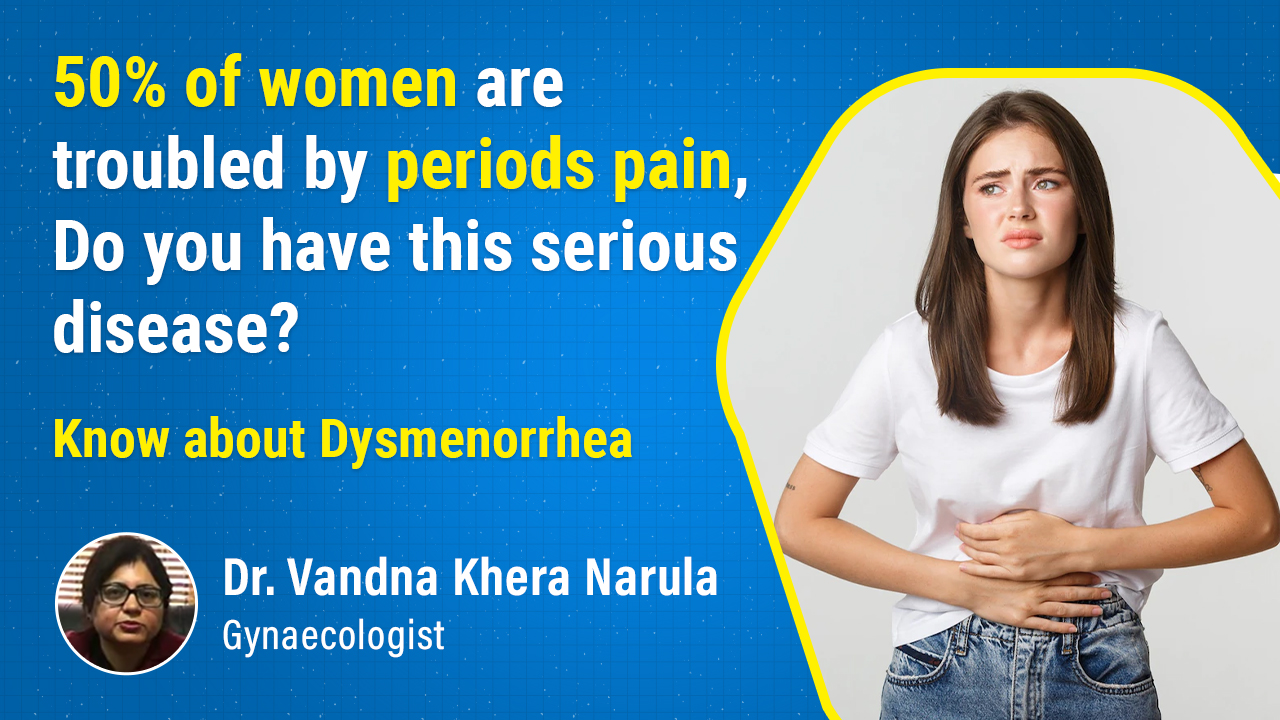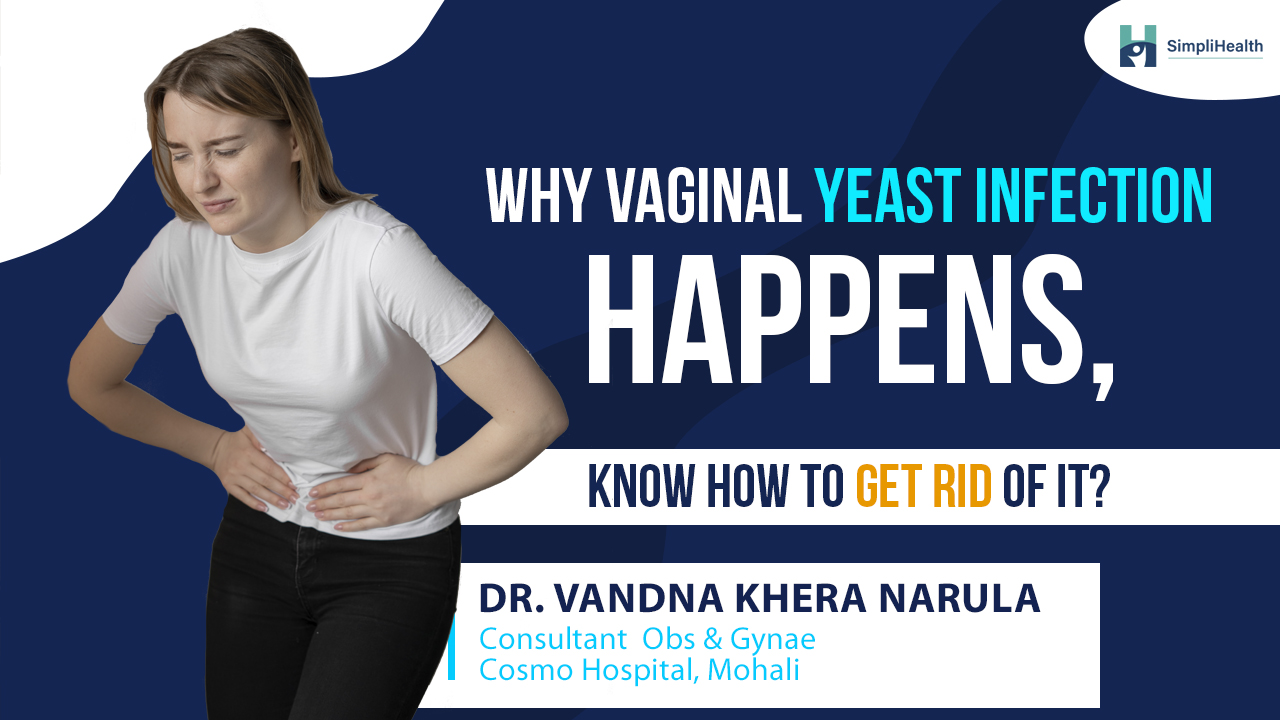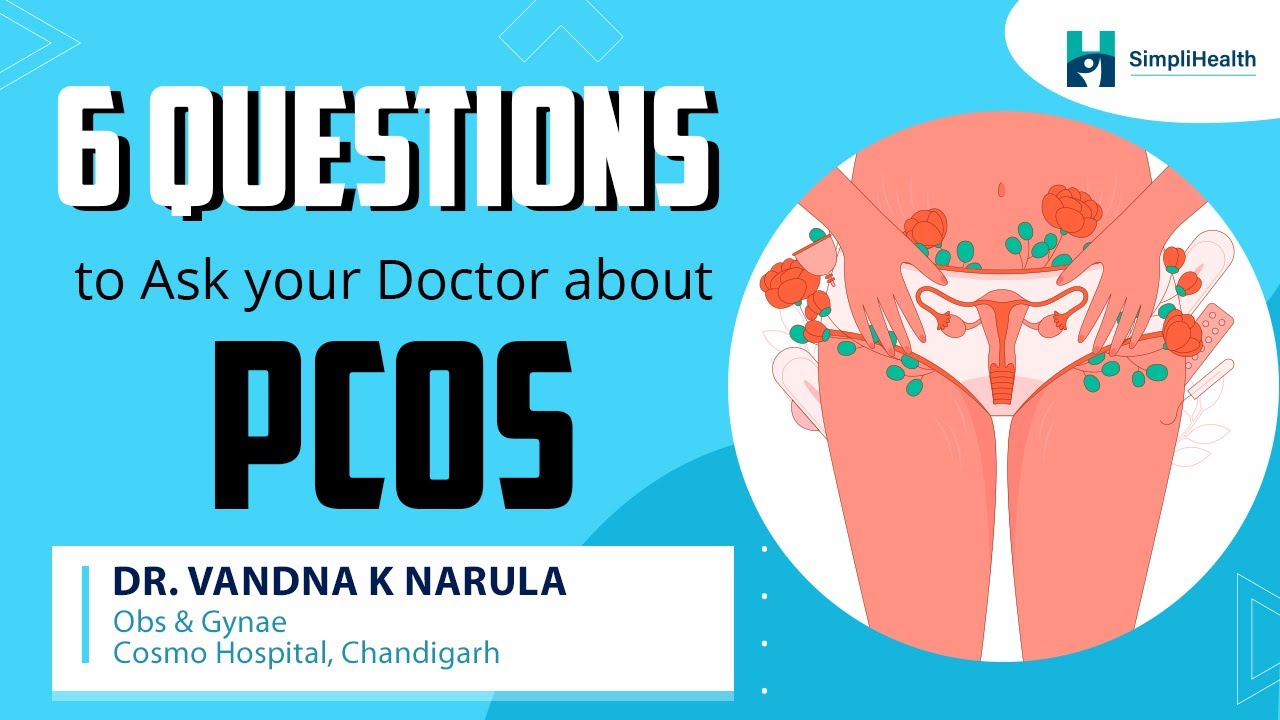PCOS(Polycystic Ovary Syndrome) | Is PCOS a serious problem? | Is PCOS caused by stress? | पीसीओडी को जड़ से खत्म कैसे करें?
PCOS (Polycystic ovary syndrome), I am Gurvinder Kaur from SimpliHealth With immense pleasure, I would like to welcome Dr. Vandana Narula. She is in charge of infertility and the IVF center at Cosmo Hospital, Mohali. Today we will be covering a significant topic which is PCOS. 1 out of 5 women suffer from PCOS. I would want dr. Vandana to answer a few questions our views have. This will help us understand PCOS better. Thank you, Dr. Vandana, for joining us, and first of all, I would like to know
what PCOS is? | Polycystic Ovary Syndrome
PCOS is a polycystic ovarian syndrome. It is a hormonal imbalance. This affects the females of the reproductive age group. It affects around 5-10% of the female population. It has become a pretty common word nowadays. Physically the hormonal imbalance leads to menstrual irregularities. This is the most commonly presentable symptom, which means the patient comes to us with that. If the patient is married, then the patient comes with infertility, basically difficulty in conceiving. These are the main symptoms.
Is PCOS curable?
PCOS is a wide range of hormonal imbalances. It produces a wide range of hormonal imbalances in the body. Where it has a genetic basis, and it also has a lifestyle connection. It’s not 100% curable, but it can be controlled by various means, including medical standards.
What are the causes of PCOS? | Polycystic Ovary Syndrome
- Genetic: The leading cause of PCOS is genetic. It has always had a genetic basis. Most of the patients with PCOD have females in their homes, like sisters or mothers having similar symptoms. Like they may be having menstrual irregularities or difficulty in conceiving. Or they have diabetes in their family like the mother can be a diabetic father has diabetes or one of the grandparents can be diabetic. So there is a certain gene that connects diabetes with PCOD in the females of the family.
- Lifestyle: The second is lifestyle. The lifestyle matters a lot, but now there is junk food, fast food consumption, there is a lot of weight gain. It’s a huge problem when there is weight gain, a genetic component, and a lifestyle problem. Then PCOD shows all its symptoms quite a lot.
What are the physical and internal changes a person faces?
When we say the patient has PCOS, the symptoms or the changes depend upon the patient’s age group. When the patient is an adolescent, we start suspecting, after a few years initially when the patient begins with puberty in many girls a few physical and internal changes, like having irregular cycles because of anovulation. But after some time, the rate of irregular cycles doesn’t go down, and the periods don’t become regular. Then we start suspecting that the child might be having a PCOD kind of problem later in life. Then we go toward some family history like genetic history. That I already said any history of diabetes in the family and or if this lot of weight gain in the child then the patient presents with menstrual irregularities.
Then the physical changes are evident and common in girls like facial hair and acne. This is basically because the ovary starts producing a little bit of male hormone more than normal. The female hormones produced are estrogen and progesterone, and the body produces a few male hormones. But when in PCOD, the male hormones are produced in slightly larger amounts. And because of that, the acne and facial hair distribution, which we call Hirsutism, male pattern baldness, thinning of the hair. So, such features start showing up as symptoms.
And when the girl gets married, then a major problem comes in conceiving. Because the issue of the hormonal imbalance leads to animation which is, difficulty in egg formation. The patient finds difficulty in conceiving. Then if the patient conceives during PCOD, there are problems, then I’ll talk about this later. There are problems during pregnancy. It can be a high-risk pregnancy.
And after that, in the age group, after the patient has completed the family, it can lead to other problems in the body. Some cases include diabetes and hypertension, high cholesterol levels, and even endometrial hyperplasia and endometrial carcinoma.
Do you need to take birth control pills? | Polycystic Ovary Syndrome
Birth control pills are made for contraception. Most people know they are meant for contraception. But when we use them in PCOD, they are used for the regularisation of the cycles. When the patient is unmarried, there are particular birth control pills nowadays for PCOD patients. These are hormonal pills that are taken for 21 days. The patient is then taken off the pills for a week, and the patient starts getting a regular cycle. And even the symptoms of acne and facial hair are also improved. These are certain advantages. And the patient feels normal.
Once the patient wants to conceive, then there is no role of birth control pills. And after that, for contraception, once they have the child, I have already mentioned the patient can again start with birth control pills for regularisation of cycles. But these birth control pills should always be taken into consideration by the gynecologist.
If the patient is resistant to insulin, how does this affect the treatment?
See, insulin resistance is written everywhere, but I think it’s a medical term. For laymen, there is no need to go into the depth of what insulin resistance is. It is basically because I already told you a gene that links diabetes in the family to PCOD. Most PCOS patients show insulin resistance, i.e., their body’s cells find it challenging to uptake the glucose. Therefore they have a high blood glucose level.
Insulin resistance is a link to many other problems. Then it leads to all kinds of metabolic disturbances which occur in the body. And the first thing which we have to do for insulin resistance is weight loss. This is the keto treatment.
When we start this treatment, the first thing when the patient comes to us with PCOS is to diagnose it with hormonal ultrasound and history of the patient. The patient has to be put on weight loss therapy if she is overweight. And it is not always that the patients are fat. There are cases where the ladies are skinny and still have PCOS, diagnosed by ultrasound or any hormonal test.
The key to insulin resistance, which is fighting insulin resistance, is weight loss and diet.
What is the best diet for weight loss? | Polycystic Ovary Syndrome
There are so many diets available, but the thing is, patients should go for weight loss. The patient should not go on a fat kind of diet for weight loss. Here the main thing is that the carbohydrate load has to be reduced. It has to be low carb, high protein. If wheat flour is being used, multigrain flour should be used instead. And processed food should be avoided. Outside food should be avoided. The glycemic index has to be maintained. A healthy lifestyle has to be followed. A Mediterranean diet is there, where lots of green leafy vegetables, fruits and nuts, and legumes are included and exercise and brisk walk. Whatever the patient can start with, not going to the gym is the only way to lose weight. You can start with a short brisk walk or anything, then going with and getting a routine.
PCOD also affects the fertility of the person?
As an IVF specialist, I deal with infertility. Most of the patients coming to me have PCOD. As I told you earlier, patients have menstrual irregularities like patients who don’t get periods regularly. It will not be monthly as regular patients get. They will have periods after one and half months, two months, three months, or sometimes. If the symptoms are worse than the hormonal imbalance, the patient doesn’t get periods without medication. Medication has to be given. So when we do ultrasound, we see that the ovaries are of such and such shape. Like in PCOS, we see that there is a specific kind of shape of the ovaries. We can diagnose it. And when we see ovulation, formation of the follicle, formation of the egg, there is a problem. Ovulation is the cause of infertility. Rest other reasons are also taken into consideration.
We check for all other causes also. We are only checking for PCOD. All the tests are done. And when all the tests are done, we stumbled upon this diagnosis, and treatment is started accordingly.
Does PCOS cause Postpartum depression as well? | Polycystic Ovary Syndrome
As far as the word depression you said, depression is related to PCOD as such. So I’ll talk about Postpartum after that.
Young girls and the internet:
See when the lady is in a condition like not getting periods when the most significant stress is on the parents. Then the page is passed onto the girls. And nowadays everybody is very net-savvy. So they go on Google and put the symptoms and lots and lots of information on PCOD. Then girls get confused. Once you start reading about PCOD, they begin to feel like something has happened to them very young. But there is no need to worry about that. This is one cause of depression.
Physical appearance:
Then secondly, it is because of these facial features like facial hair and acne, the physical appearance. This again leads to depression when they look in the mirror. They think they are not looking beautiful. They feel that people will make fun of them for having facial hair could cause anxiety or depression.
After marriage:
Now these girls are very much aware. They think after marriage they’ll have problems conceiving then again. They start feeling depressed. So then, if there are little or no support groups, all these things aggravate.
If the patient conceives, then it’s a very, very positive thing for the patient. When a patient conceives in PCOD, she is one of the happiest people in the world. So I don’t know where this postpartum depression came from, but she has to be given a lot of care during the pregnancy. A little more care than a normal pregnant patient is provided. They have to be given a little extra care by the doctor also. So the patient also has to take extra care. And even the relatives, husband we tell them to take care of the patient accordingly.
So Postpartum depression, like a see, affects most females. But I can’t say like maybe these reasons where the Postpartum depression is for normal cases. You can also see, the same way, the ladies are confined to a room and think that ‘I don’t have anything else to do,’ ‘I am just watching the child.’ And even their male partner sometimes withdraws. So she is staying in a room with a mother-in-law or sister-in-law or something like that. And she cannot talk about some things. Sometimes she is not allowed to watch television or do anything else. And some other hormonal factors are also there.
So family support and friends’ support is significant. Now, as we talk about mental disorders, I don’t want to drag that topic here. But psychology affects everything. Suppose the psychology of anyone is taken care of by a support medium, such as family’s support, friends’ support. There are also certain support groups. All the feelings need to be talked out. Then there would be a problem like depression.
Anything important you want to add, anything you think would be essential and helpful that you would like to add?
I would like to add one thing, whenever I see girls just thinking about and reading a lot about PCOS from the net. I’ve seen them getting so much stressed, literally so much stressed that have seen extremes of people of girls saying I won’t get married because I have PCOS. Something will happen, I won’t have a kid, this will happen, that will happen. So I don’t think a girl should take so much stress. You should basically avoid living a sedentary lifestyle. It is not something that cannot be treated, or like cannot be cured. It’s fine that you have PCOS but don’t make it the central point of the mind of your life, thinking all the time that you have PCOS, then this will happen. See there is nothing bad about it, you just need to have and maintain an active lifestyle.
So you should start early. You start by joining a game, you can join a gym, you can go for yoga classes regularly and take proper diet. Go for a walk. This means you should keep a healthy lifestyle and improve yourself. As for his physical features are concerned if you have facial hair. there’s no need to worry. There are a lot of cosmetologists available. Very quick painless laser surgery is there and acne also can be helped with a diet as I already told you. And with all these proper lifestyle choices, even the acne has to dissolve.
And the physical appearance when introduced to a healthy lifestyle improving drastically. When we ask them to lose weight and proper diet is followed everything is good. And as far as working for a child after marriage is concerned, there are a lot of medicines available. And there is no need to worry. We have so many PCOD patients who conceive normally. There is nothing to worry about that was the thing of the past.
Don’t overthink, adapt a habit of physical activity. And on this positive notable like to conclude the interview and would like to heartily thank Dr. Vandana for spending some time for us and giving us valuable insight thank you.


